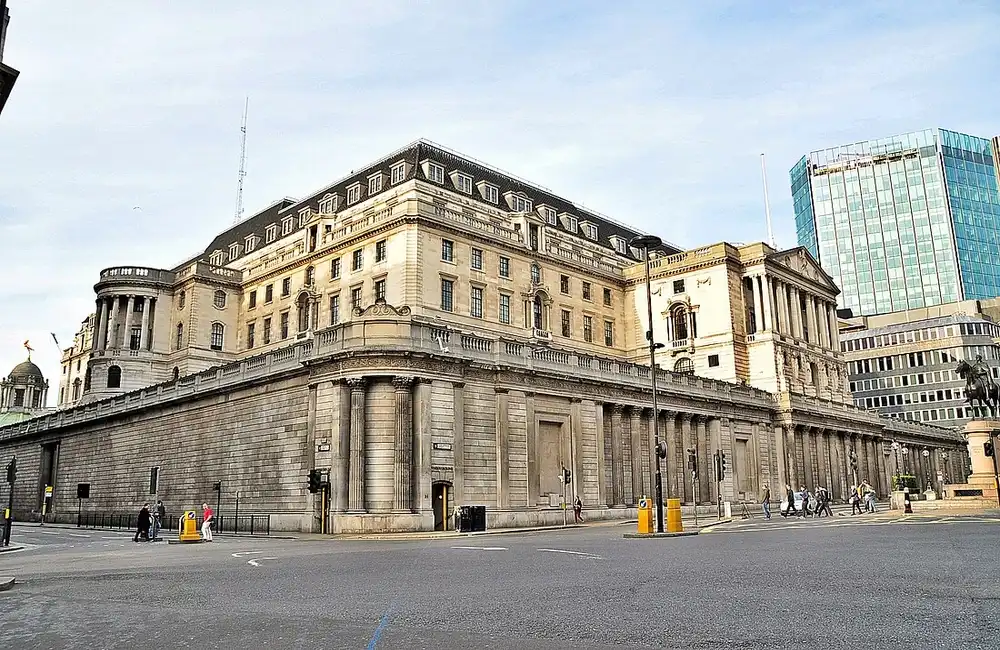By confirming its alignment with the EU's Carbon Border Adjustment Mechanism (CBAM), the UK government has set a decisive course for its trade relationships, environmental strategy, and international collaborations.
The UK's alignment with EU standards protects exporters from significant EU tariffs but faces hurdles such as potential trade conflicts with the U.S. during Donald Trump's presidency. The UK demonstrates its wider intentions to harmonise trade ties and environmental duties in a fragmented global setting through this strategic decision.
UK's Alignment with the EU CBAM
Prime Minister Keir Starmer has strategically chosen to synchronise UK carbon levies with the EU's CBAM to impose tariffs on high-emission industry imports. Carbon leakage will be discouraged by the CBAM through charges that match EU domestic carbon prices once it becomes fully operational in 2027.
By matching the UK’s carbon levies to EU standards UK exporters can avoid £800 million in annual EU green tariffs which mainly affect steel, aluminium, cement and fertilisers. UK businesses exporting to the EU would face financial burdens from UK-EU carbon levy differences without this alignment which could harm their competitiveness and growth potential.
The CBAM implementation demands that the UK dynamically align its carbon pricing system with the EU to allow EU price changes to affect UK carbon costs. The protective measure for UK exporters simultaneously creates uncertainties regarding the country’s regulatory independence. Government sources describe this alignment as a vital compromise for re-establishing the UK-EU relationship after Brexit through improved economic and environmental collaboration.
Potential Trade Dispute with the US
This economic decision holds potential to create trade conflicts with the United States. The Biden administration had expressed criticism toward EU environmental policies but Donald Trump's return to the White House as president has intensified American doubts about carbon taxes. Trump has repeatedly accused these measures of being protectionist because they create discrimination against American products while introducing non-tariff trade barriers.
The US threatened to impose retaliatory tariffs on nations that introduced green tariffs during Trump's presidency. Documents leaked earlier this year showed US opposition to shipping emission levies because American diplomats labelled these measures as unjustly punitive. According to trade specialists a trade conflict would become unavoidable if President Trump determines that the UK-EU carbon alignment practices operate anti-competitively.
The implications for UK exporters are concerning. British companies that are already dealing with the 25% US tariffs imposed on steel and automotive sectors might endure additional penalties which will intensify their financial burdens. Britain needs to preserve harmonious ties with the US because it remains their top trading partner and this relationship is crucial for reducing commercial disruptions.
UK-US Trade Negotiations and Digital Tax Concessions
As part of its diplomatic strategy the UK continues active trade negotiations with the US to eliminate current tariff barriers. UK authorities have reportedly given multiple concessions to obtain advantageous terms. DST amendments hold the primary position among negotiation points because they have drawn Silicon Valley's attention and created tension in UK-US discussions.
In 2020 the 2% DST directed its focus at major American tech companies including Google and Amazon yet faced strong opposition in Washington because it appeared to discriminate against US businesses. Prime Minister Starmer put forward a proposal to reduce the DST rate and change its application thresholds to satisfy American tech companies and preserve a taxation system. Experts express concern that this compromise will diminish UK revenue from digital services and undermine international efforts to establish fair corporate taxes.
The Online Safety Act, which serves as critical UK legislation for digital platform regulation faces controversy over potential weakening measures. Some parties worry that the UK's digital sovereignty will be threatened because of its compliance with US regulatory demands. Making trade concessions can facilitate discussions but triggers domestic debates regarding national legislative priorities.
Domestic and International Reactions
Starmer's methods have produced diverse responses both inside the country and on the international stage. The EU alignment received strong support from leaders in industries that produce significant emissions because it delivers economic advantages through cost reductions and smoother trade processes. The potential loss of regulatory autonomy has become a concern to MPs throughout Westminster’s political landscape. Emily Thornberry and Labour MPs want to hold parliamentary votes for any UK-US trade agreement to ensure transparency and accountability.
UK trading partners experience increased anxiety because of Trump’s unpredictable policies. A number of EU diplomats backed the alignment because they see it as a beneficial step for improved EU-UK collaboration. Concerns are mounting over potential US trade policy weaponisation as Britain moves towards European trading norms.
Long-Term Implications for UK Trade Policy
The UK's adoption of the EU's CBAM demonstrates its new post-Brexit strategy which focuses on stronger economic ties with Europe to mitigate Brexit-related disruptions. This decision demonstrates that environmental diplomacy is becoming essential in global trade relations because tackling climate change requires economic and political strategies from all nations.
The threat of US trade sanctions creates obstacles for the UK's strategic goals. British growth could suffer significant damage from increased tariffs affecting essential sectors such as automotive and technology exports. The potential weakening of the UK digital tax system may establish dangerous precedents that undermine international progress in regulating tech companies.
Britain’s fragile trade policy position becomes evident through its need to align because it is trapped between two economic giants who prioritise different agendas. Policymakers must exercise precise navigation to balance UK domestic interests with EU relations and US partnerships without losing any key ally.
A Balancing Act with No Easy Answers
In its effort to establish a new global trade position Britain has taken a decisive step by aligning with EU carbon levies to strengthen its post-Brexit strategy. The challenge of aligning environmental priorities with economic necessities creates ongoing pressure for policymakers. These policies will succeed long-term if the UK maintains strong cross-Atlantic partnerships while handling domestic stakeholder demands and adjusts to international trade shifts.
The UK needs to proceed cautiously to shield itself from international trade conflicts while developing strategic plans for sustainable competitive advantage.

















